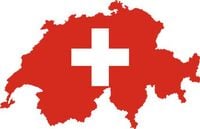Switzerland has taken a significant step in regulating advanced technologies by expanding its export controls to include dual-use goods, particularly in the fields of quantum computing, artificial intelligence, semiconductors, and additive manufacturing. This announcement, made on April 2, 2025, marks a crucial development in the country’s approach to balancing security concerns with the need for technological competitiveness.
According to a statement from the Swiss government reported by Reuters, the new measures aim to align Swiss export practices with international standards while ensuring that domestic industry and research institutions maintain access to essential technologies. The government emphasized that this initiative is part of a broader global trend toward regulating emerging technologies, following similar actions by the United States and France.
In recent years, dual-use technologies—those that can be utilized for both civilian and military purposes—have come under increased scrutiny. This is particularly true in the realm of quantum computing, where controls often focus on critical components such as quantum processors, control electronics, and cryogenic systems, as well as software and algorithms with potential cryptographic applications.
The urgency for such measures has been underscored by the actions of other nations. In late 2023, the U.S. introduced an interim final rule that restricted the export of quantum computers, components, and development tools deemed to have military or national security implications. This regulation also created a license exception for countries that implement equivalent controls, highlighting the emphasis on international coordination in the management of these technologies. Alan Estevez, Under Secretary for the U.S. Commerce Department’s Bureau of Industry and Security, stated, “Aligning our controls on quantum and other advanced technologies makes it significantly more difficult for our adversaries to develop and deploy these technologies in ways that threaten our collective security.”
Similarly, France enacted a national control list in February 2024, based on EU Regulation 2021/821, which regulates systems with controlled functional qubits and associated components. This reflects a growing trend toward more granular export governance over quantum technologies, as countries recognize the strategic importance of these innovations.
Switzerland’s decision to expand its export controls is also significant in the context of its longstanding commitment to balancing security and access. The Swiss government has made it clear that while it aims to prevent the misuse of sensitive technologies, it is equally important to safeguard the ability of Swiss researchers and industries to access and develop critical innovations. This dual objective is increasingly becoming a central theme in national approaches to regulating quantum and emerging technologies.
As part of this initiative, the Swiss government plans to publish a list specifying the goods subject to these new export controls. While the exact items have yet to be detailed, the intention is to provide clarity and guidance for industries involved in these evolving technological sectors.
This move comes at a time when many countries are refining their export control regimes, leading to a more unified global approach to managing the movement of dual-use innovations. The tightening of regulations reflects a growing recognition of the potential risks associated with the proliferation of advanced technologies, particularly in an era where national security concerns are paramount.
Switzerland’s strategy stands in contrast to some international frameworks, such as the AUKUS alliance among Australia, the U.S., and the U.K., which have sought to relax export restrictions among trusted partners to accelerate defense-oriented research and development. Instead, Switzerland is opting for a more traditional approach that prioritizes alignment, access control, and compliance infrastructure.
In summary, the expansion of Switzerland’s export controls on dual-use technologies represents a significant shift in its regulatory landscape. By aligning with international standards while ensuring that domestic industries have access to critical technologies, Switzerland is positioning itself as a responsible player in the global technological arena. The balance between security and competitiveness will likely continue to shape the discourse around export controls as more countries follow suit in regulating advanced technologies.






